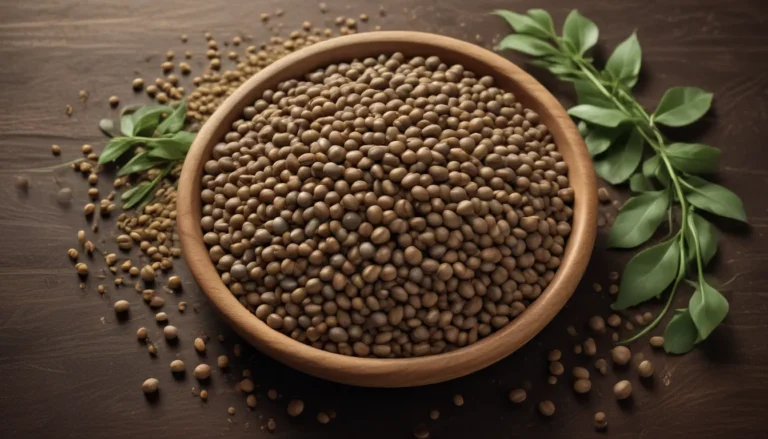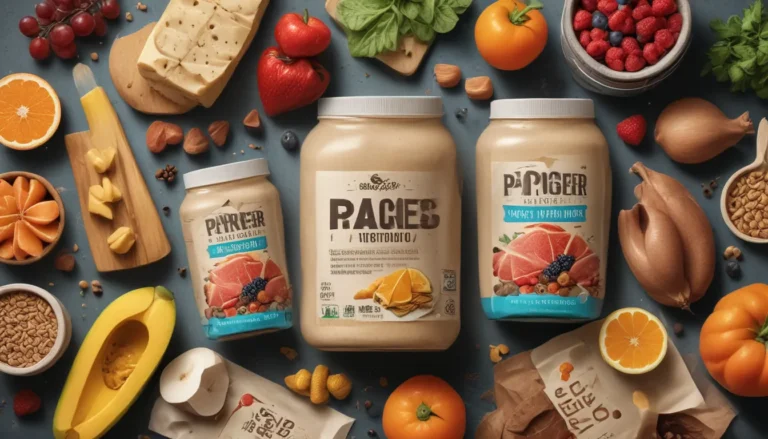The pictures in our articles might not always show exactly what the text is talking about. We use these images to make the article more interesting and eye-catching. They are there to add to the text, but not to replace it or show every detail.
Are you looking for a tasty and healthy protein source to add to your meals? Look no further than mutton, also known as sheep meat. Loved for centuries for its rich flavor and versatility in cooking, mutton is a powerhouse of nutrients that can benefit your overall well-being. In this article, we will delve into the 12 key nutrition facts about mutton and how it can be a valuable addition to your diet.
Unleashing the Protein Power of Mutton
Mutton is a treasure trove of high-quality protein, offering all the essential amino acids needed by your body to support tissue growth and repair. With approximately 26 grams of protein in a 100-gram serving of cooked mutton, this meat is a fantastic option for meeting your daily protein needs in a delicious way.
Essential Vitamins and Minerals in Every Bite
Loaded with essential vitamins and minerals, mutton can be a great addition to your diet. It is a rich source of B vitamins, especially vitamin B12, crucial for red blood cell formation and neurological function. Additionally, mutton contains minerals like iron, zinc, selenium, and phosphorus, all playing vital roles in various bodily functions.
Iron-Infused Energy Booster
Iron is a key mineral that aids in oxygen transportation throughout your body, ensuring optimal energy levels. Mutton is a fantastic source of heme iron, which is easily absorbed by your body. By incorporating mutton into your diet, you can help prevent iron deficiency anemia and maintain your overall vitality.
Bolster Your Immune System with Mutton
Zinc, found in mutton, is known for its immune-boosting properties. This essential mineral supports enzymatic reactions that enhance immune function, aiding your body in fighting off infections. Including mutton in your meals can help fortify your immune system and keep you healthy.
Muscle Support from Mutton
Whether you're looking to build muscle mass or maintain it, mutton is an ideal food choice. The high protein content in mutton provides the necessary amino acids for muscle growth and repair. Additionally, mutton contains creatine, a natural compound that can improve muscle strength and exercise performance.
Embrace the Healthy Fats in Mutton
While omega-3 fatty acids are commonly associated with fatty fish, mutton also contains these beneficial fats in moderate amounts. Omega-3s are known for their heart and brain health benefits. Including mutton in your diet diversifies your omega-3 intake, contributing to a well-rounded nutritional profile.
Say No to Excess Sodium with Mutton
If you're watching your sodium intake, mutton is a smart choice. Compared to processed meats and some beef cuts, mutton generally boasts lower sodium levels. A low-sodium diet helps maintain healthy blood pressure and reduces the risk of cardiovascular issues.
Beautify Your Skin and Joints with Collagen
Collagen, a vital protein for skin and joint health, is found in mutton. Consuming collagen-rich foods like mutton may aid in collagen production, promoting skin health, reducing signs of aging, and supporting joint flexibility.
Tap into the Energy of Creatine
Mutton contains creatine, a naturally occurring compound crucial for energy production during high-intensity workouts. By replenishing ATP, the body's primary energy source, mutton can enhance athletic performance and boost muscle strength.
Elevate Your Brain Health with Choline from Mutton
Choline is an essential nutrient in mutton that supports brain health and development. Involved in memory, mood regulation, and nerve function, choline is vital for optimal brain health. Including mutton in your diet ensures a good supply of this brain-boosting nutrient.
Selenium: The Antioxidant Hero in Mutton
Selenium, an essential mineral with potent antioxidant properties, is abundant in mutton. This nutrient shields your body from oxidative stress, promoting a robust immune system and overall well-being.
Feel Full and Manage Weight with Mutton
Thanks to its high protein content, mutton can keep you feeling full and satisfied, aiding in appetite control and weight management. Incorporating mutton into a balanced diet can help you reach your healthy weight goals.
Conclusion: Embrace the Nutritional Bounty of Mutton
In conclusion, mutton is a delectable and nutritious meat choice that offers a plethora of health benefits when enjoyed as part of a well-rounded diet. With its protein punch, essential vitamins and minerals, and other valuable nutrients, mutton can be a wonderful addition to your culinary repertoire. Remember to opt for lean cuts and practice moderation to reap the rewards of mutton while maintaining a balanced diet.
FAQ: All Your Mutton Questions Answered
Is mutton suitable for a low-carb diet?
Yes, mutton is an excellent protein source with minimal carbohydrates, making it ideal for low-carb diets.
Can mutton be part of a heart-healthy diet?
Absolutely! Lean cuts of mutton in moderate portions can be a nutritious addition to a heart-healthy eating plan.
Is mutton beneficial for individuals with iron deficiency?
Yes, mutton is a great choice for individuals with iron deficiency due to its high heme iron content, easily absorbed by the body.
How does mutton compare to other meats in terms of fat content?
Mutton generally contains moderate fat levels. Choosing lean cuts and trimming visible fat can help reduce overall fat intake.
Can individuals on a gluten-free diet enjoy mutton?
Yes, mutton is naturally gluten-free, making it a safe and tasty option for those following a gluten-free diet.
Join us in our commitment to providing accurate and engaging content by exploring the diverse insights and information shared on our platform. Trust in the authenticity and reliability of our content as you continue your journey of exploration and learning with us.






